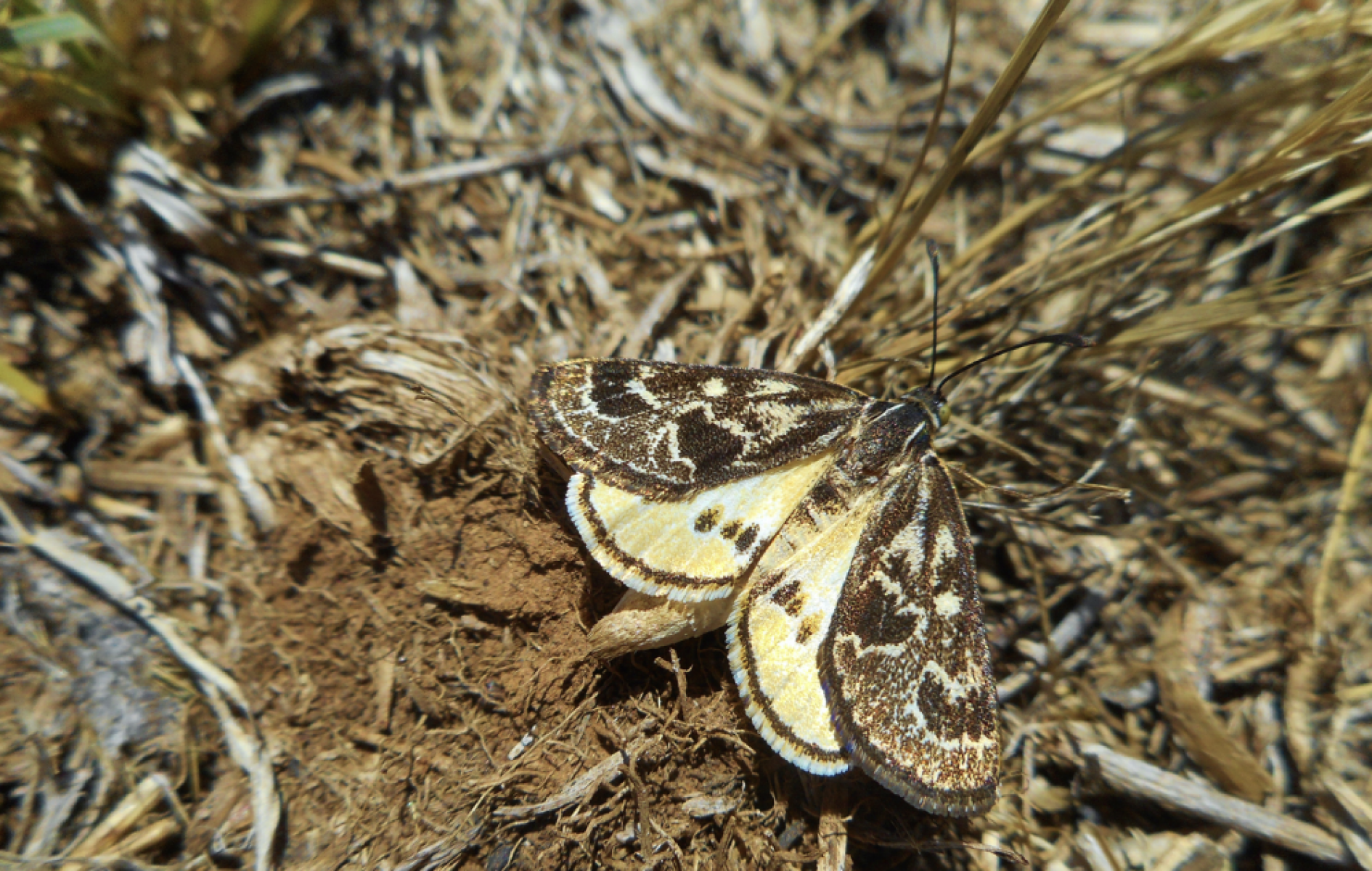On this page:
Meet the golden sun moth
Scientific name: Synemon plana

Conservation status
Victorian Government status: vulnerable
Australian Government status: vulnerable
About
With club-like antennae and a wingspan of just 3 cm, the golden sun moth is one of Victoria’s rarest insects.
Unlike most moths, the golden sun moth is active during the day – and while females rarely take flight, males fly in a zig-zag pattern in the warmest part of the day looking for a mate.
Females spend most of their adult life laying around 100 to 150 eggs in clumps of wallaby grass. Around 3 weeks later, the eggs hatch and the emerging caterpillars tunnel below the ground, where they live for one to 3 years. Once hatched, the adult moths only live for one to 4 days.
Threats
- habitat removal, primarily for agriculture
- excessive vegetation
- predators (birds)
- loss of food plants.
Where are they found?
Small patches in south-eastern Australia, in mostly grassland habitat.
What we are doing
The golden sun moth is found in a number of our conservation areas.
Page last updated: 31/10/24
